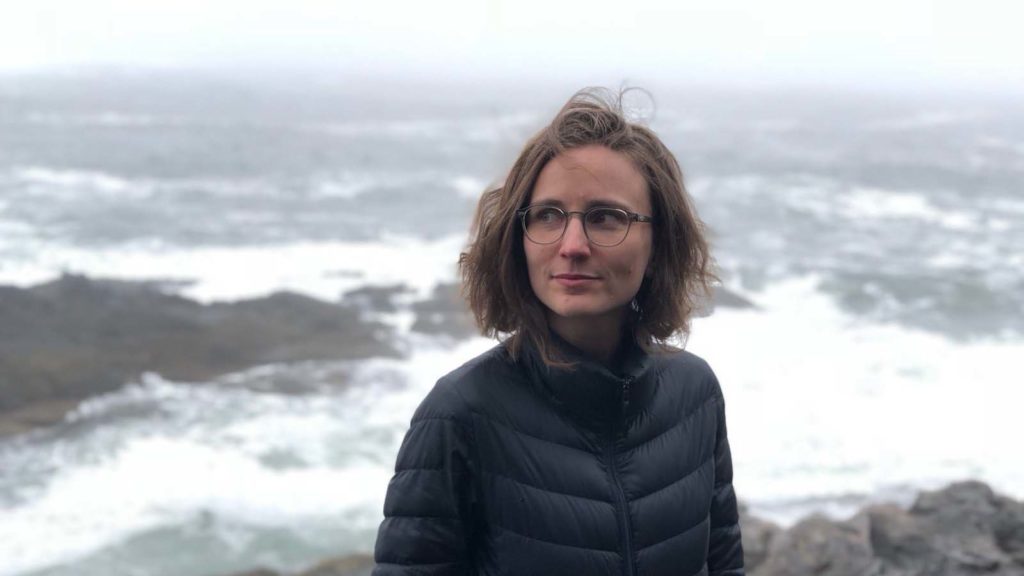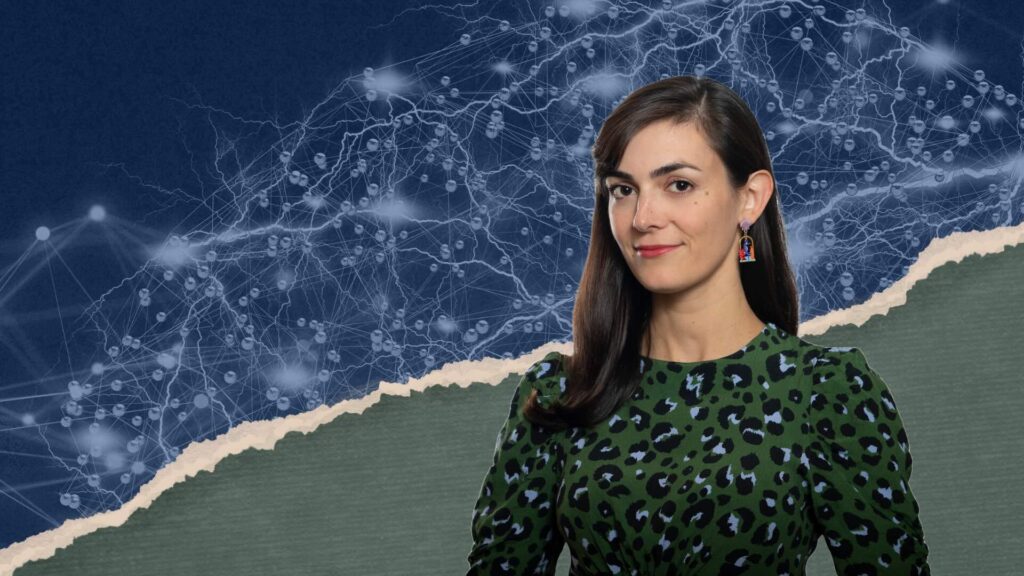The veteran journalist and Belgium native has been exploring the ways that bodies and minds respond to violence.
When Lisa De Bode worked as a reporter covering public health in New York City, she turned her attention to a problem that society often overlooks: homeless women’s menstrual health and the challenges they face to access feminine hygiene products. Women are the fastest growing group among the homeless, says De Bode, who wrote about the issue in a series of pieces for Al Jazeera America. On an average night in New York City, she says, around 4,600 women will sleep in a shelter.
“Gendered ideas really influence the way we make policy. We don’t think to donate or provide pads and tampons because the stereotype of a homeless person is a man under a bridge,” said De Bode. “Fortunately, my editors were very supportive.”
De Bode’s work spurred a wave of donations and kindled discussions and advocacy that ultimately led to new legislation guaranteeing free access to feminine hygiene products for women in New York City’s shelters, prisons, and public schools. Her work continues to influence policy in cities across the world and restore dignity to women’s bodies, she says.
Health and politics are recurring themes in De Bode’s writing. “I’m very interested in how individuals cope with change and trauma—of war, terrorism, immigration, climate change, and domestic violence,” she said. She recalls profiling a Native American veteran who did two tours in Iraq and had severe post-traumatic stress disorder. “She dealt with this by turning to traditional dance from the tribe she belongs to, drawing on long traditions of healing. Sometimes the way medicine is approached is not what people need to cope.”
Initially drawn to medicine herself, De Bode completed one year of medical school at the University of Leuven in her native Belgium—the same university where, in the early 15th century, Andreas Vesalius gathered corpses before he wrote “De humani corporis fabrica,” his groundbreaking books on human anatomy. But De Bode became increasingly drawn to a different path—dissecting truth instead of bodies.
“Examining the physiology of a person is interesting, but I felt strongly that there were more dimensions to people to explore,” said De Bode. “I wanted to know the bigger story behind what I was learning.”
De Bode soon completed graduate programs in economics and politics and became fluent in four languages (Spanish, French, English, and her native Dutch) and knowledgeable of two others (Arabic and German). She applied her linguistic abilities working as a staff reporter covering public health for Al Jazeera America in New York and as a field producer covering terrorism at CNN in Brussels.
At CNN, she covered advocacy efforts led by mothers of foreign fighters based in Brussels. De Bode also was the writer of “EUROPA, An Illustrated Introduction to Europe for Migrants and Refugees,” a collaborative guidebook that was awarded the 2018 Royal Photographic Society’s Hood Medal.
Before coming to Cambridge, De Bode traveled widely as a freelance reporter for stories published in places like The Atlantic, The Nation, and The Village Voice. She garnered numerous awards and fellowships along the way, including a 2014 Sigma Delta Chi Award for best non-deadline reporting.
This year, De Bode leveraged her Knight Science Journalism Fellowship at MIT to further explore ways that bodies and minds respond to violence.
“My fellowship looks at how our bodies yield to power but also resist the demands of our time, language, and culture,” said De Bode. “My journalism explores how we build community, and improve the worlds we live in.”
This is the tenth in a series of profiles of the 2018-19 Knight Science Journalism fellows, written by students in MIT’s Graduate Program in Science Writing.





Leave a Reply